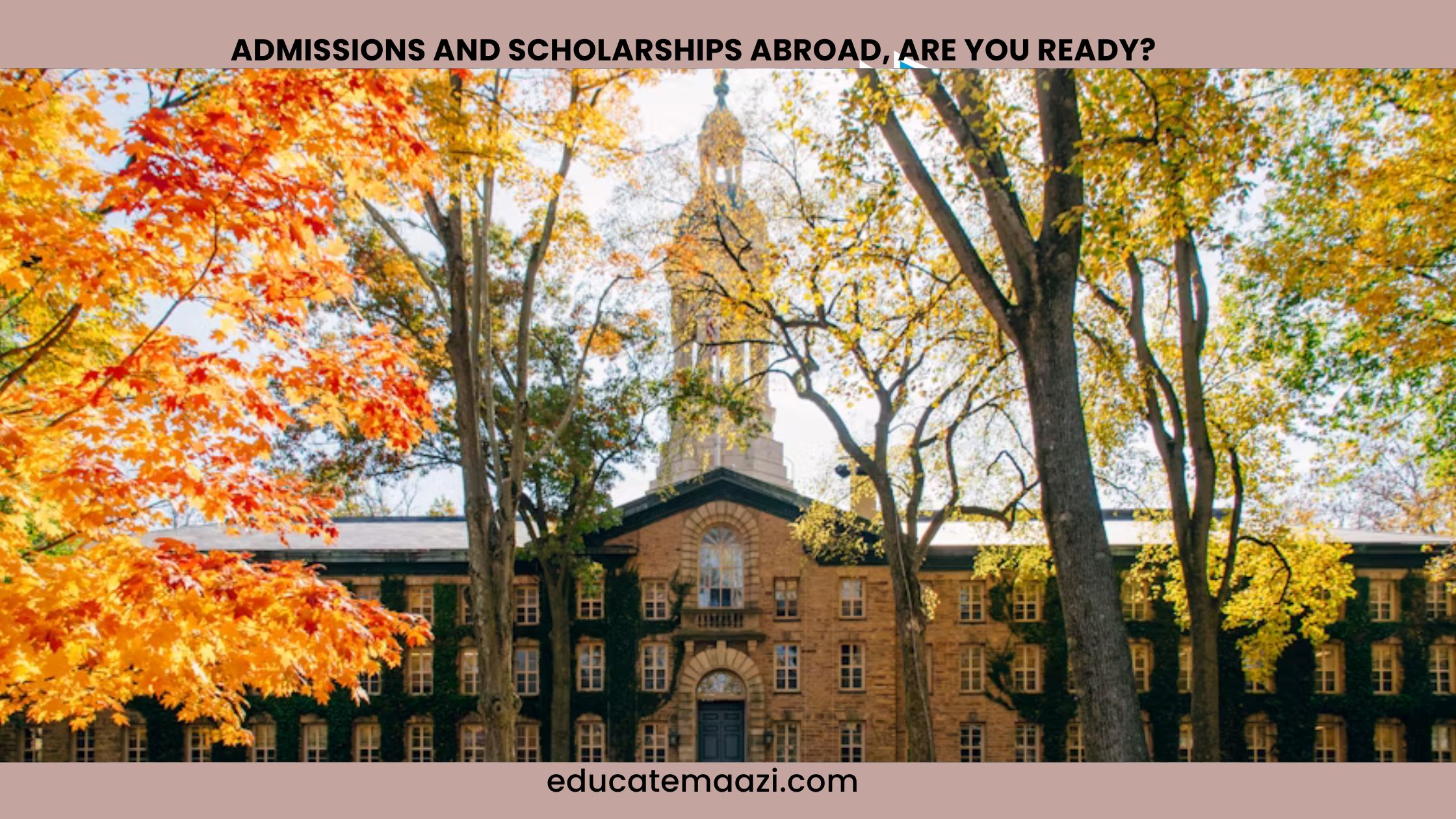Some have asked me how they could prepare for admissions and scholarships in universities abroad. This is usually because the application deadline for both admissions or some scholarships are always faster. By the time they are preparing for it, the deadline has passed. The question is, how can they grab such opportunity before it escapes the grip of their flingers?
Listen, always read other articles even when the deadlines have passed. Study their requirements and what are expected of applicants. Then, gather them and prepare for next time.
This article will help you organize yourself and know what you could do in order to get admission to a possible scholarship in the next academic session.
Preparation for Admissions and Scholarships
They say that “preparation meets opportunity”. Going by this statement, one has to be prepared and wait for any opportunity. Opportunity is like the day a pregnant woman gives birth to a child. Throughout the period of pregnancy, both the woman and her husband have been preparing for the arrival of their newborn. They could not just relax, and on the day of delivery, feign surprise. It doesn’t happen like that. The preparation includes the antenatals, checkups, gathering baby’s wares, food and other items till the baby arrives.
Similarly, preparing for admissions abroad or scholarships entails nursing your ideas, gathering materials and conducting research. You have to know where you want to study, why you want to study there, the course you want to study, why you want to study it. You have to find out also, whether the professors in the institution are conducting research similar to your areas of interest. What are the important deadlines? What are the materials and documents necessary for you to use?
The above mentioned questions are important for you to consider while making a decision whether you want to travel or study abroad or not. Remember, you are like a pregnant woman in that situation waiting for the day you will deliver. That delivery day is eventually the day you will get admitted into a university and perhaps get a scholarship to fund your studies.
Things to Keep in mind about Admissions and Scholarships
- Research: You must learn how to do research. This kind of research is not academic research (of course that is important), but where to find what you are looking for. What drives this kind of research is the question: which country do I want to study? What do I like about that country? What course do they offer? What course can I study? How does this course support my future goals? What is the duration of the course? Do they fund the course? If so, is it fully-funded or partially funded? These questions are important and drive you to start digging for answers.
Remember, as someone traveling abroad to study, nobody is there to spoon-feed you with information. You are to feed yourself with any information through research. Find out all the information you need through research. Use google wisely and research.
- Asking Questions: They say that one who asks questions doesn’t go astray. To ask a question, you must be sure of what you are asking and need some clarity. That means you will first conduct research, then if there is something that isn’t clear for you, you ask questions. The question is: who are you asking the question? You may ask the program admission officer or director of the program in which you are applying to. You can get their email on the school or program’s website. Ask them any question you feel like asking. It is their job to reply you. Feel free to ask if the program is funded. So that you will not assume and waste your time and money applying to a program that is not funded.
- Cold Mail: I have written a full article about cold mail which you can read HERE. This is when you contact a professor whose research interest aligns with yours and maintain a certain form of communication with them. Some may be recruiting at the time and you might be fortunate to be among their new students. This is also a form of preparation.
Documents of Preparation for Admissions and Scholarships
- Statement of Purpose: You may see “Statement of interest” or “statement of purpose” or “Statement” as parts of requirement for admissions or scholarships – they all mean the same thing. This statement and its requirements differ from one university to another. The length also differs. Some schools may request 500 words minimum or maximum, others will request for 1000 words. If you are applying to multiple schools, make sure you tailor your statements to each of the institutions and courses. Even if what you want to study is the same program in all the universities, meet their requirements and write each of them independently to suit the expectations. You have to tell stories about yourself. Let them know you. What you have done. What you are planning to do, how the program will help your both academic and professional goals.
- CV: You will have to tailor your academic CV to suit the intent of the program you are studying. Your personal information like your age, tribe, religion, date of birth are not required. Start with your education, job experience, etc. Learn how to write academic CV. You can look that up online. Remember, CV templates differ country by country/ region by region. For instance, the European structure used for Erasmus Mundus Scholarships requires your photograph, which is different from North America style.
- Academic Transcript: Get your academic transcript ready from your previous institution. Scan them and use them for your applications. After being admitted you can send your official transcript through your school to the new institution.
- Test Score: Check if the school you are applying to request for GMAT, GRE, SAT and other tests before application. Sit for the exams. Some waive them.
- English Proficiency: Some schools demand for English proficiency exams. Some demand for IELTS or TOEFL. You can get an English proficiency letter from your previous university to present as evidence that English was the medium of study in your previous university. Some schools and scholarships like the Erasmus Mundus Scholarship are serious with the proficiency tests. You must sit for them to be considered.
- Recommendation Letters: Make sure you have two to three professors who could assess your works and write your recommendation letters. Notify them on time before applying.
- Degree Certificate: Make sure you have your degree certificates ready. If you are applying for undergraduate, you could use your WAEC if you are from West Africa. If you are going for a master’s, use your bachelor’s degree. If you are going for your Ph.D you could present both bachelor’s and Master’s degrees. Remember, some Ph.D programs require you to have just a bachelor’s degree. Instead of studying for master’s you go straight to Ph.D from your bachelor’s and study for five years, especially in the United States. You could get your master’s in between.
- Writing Sample: Check the kind of research the program you are applying to are doing and write a sample that fits in. Students of creative writing will write short stories, poems or non-fictions to present as samples. Check the requirements and number of pages required. Others can also present their term papers, academic research paper, articles or portfolios as samples. Their writings will be judged if they merited the kind of research or studies required in the program in which they seek admission.
When you have all these documents, you are set to apply.
Get ready now and smile next year!


Insightful
Please more of this .
Thanks for this
This is wonderful.
Thank you sir.
This is so insightful. Thank you